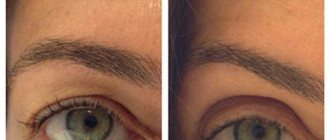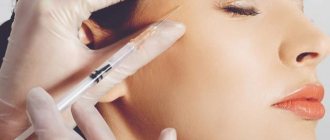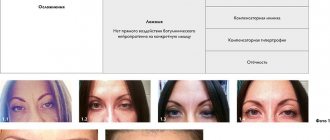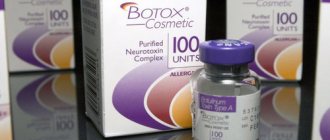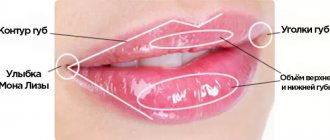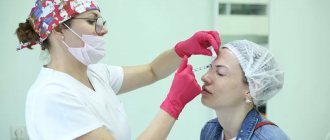Compatibility
According to experts, the simultaneous use of antibiotics and botulinum toxin is not allowed, since incompatible substances can provoke the development of an unpredictable reaction. However, doctors themselves often cannot give a definitive explanation of why this happens. For this reason, it is considered that such a restriction is unjustified.
Most experts believe that the simultaneous use of antibiotics and botulinum toxin preparations is unacceptable.
This is due to the fact that some antibacterial agents affect the metabolism of the liver and kidneys, which, in turn, affects the removal of botulinum toxin from the body.
Others (lincosamides, tetracyclines, macrolides, polymyxins, etc.) enhance the effect of the toxin, including its side effects.
Botox is a remedy whose main active ingredient is the toxic substance botulinum toxin type A, which relaxes the facial muscles and blocks communication with the nervous system.
An antibiotic belongs to the antibacterial group of medications, inhibiting the activity of microbes and bacteria. Some drugs can have a negative effect on the functioning of the kidneys, through which botulinum toxin is eliminated from the human body.
Usually we are talking about combining Botox and antibiotics when a person is sick with something (fungal or bacterial disease).
It is important to understand that Botox is not used for infectious pathologies, so simply excluding antibiotics is often not a solution.
Cosmetologist, dermatologist, trichologist
Kalinina Olga Alexandrovna
4 years of experience
As a result, the effect of the substance ceases after the return of muscle tissue activity after about six months, but Botox begins to be eliminated much earlier - 14-21 days after injections.
Some types of antibiotics enhance the effect of the toxins contained in Botox. Even with the correct dosage, the possibility of complications cannot be ruled out.
There are also antibiotics that, on the contrary, weaken the neurotoxin. This contributes to obtaining a negative result or its complete absence. There are no side effects in this case, but the money will be wasted.
Experts identify certain situations in which antibiotics may be prescribed after Botox. As a rule, this is possible in diseases of acute infectious nature. Lack of treatment in this case can cause serious complications.
Botox - unexpected benefits
Botox that cures
— Today, few people know that Botox, long known to cosmetologists as a means of rejuvenation and elimination of facial wrinkles, has become an excellent assistant for doctors in the treatment of a number of serious ailments manifested in muscle tension. These include cerebral palsy, the consequences of strokes, diseases of the spinal cord and brain, urinary disorders, various dystonias and even multiple sclerosis. What is the basic principle of this method and what are its advantages?
This was discussed at the conference “Modern possibilities of botulinum therapy. Interdisciplinary view”, held recently at the Rostov Regional Consultative and Diagnostic Center.
OKDC specialists shared with colleagues from cities and districts of the Rostov region their experience of successful use of botulinum therapy in ophthalmology, neurology, urology, pediatrics and talked about the prospects for introducing the method in our region.
Simple, fast, effective
“The injection of the drug is administered directly into the spasmodic muscle, and the toxin helps to reduce pathologically high tone, reduce pain, eliminate spasms,” reveals the secrets of the method, the head of the Office for the diagnosis and treatment of diseases of the extrapyramidal system and botulinum therapy, a member of the National Society for the Treatment of Parkinson’s Disease and Movement Disorders, Denis Borisovich Voronov.
— This technique is considered one of the most effective ways to get rid of involuntary body movements, such as forced closing of the eyes (blepharospasm), uncontrolled movements in the face and limbs (muscle twitching, tremors, motor tics), grinding of teeth, strabismus, torticollis and even urinary disorders . The drug helps with migraines and other pain syndromes. Often, botulinum toxin injections are prescribed to patients after a stroke for more effective rehabilitation.
This technique is used quite widely at the Regional Clinical Diagnostic Center. And after a course of botulinum therapy, patients forget about many health problems. The injection is performed by a highly qualified doctor with special training. The drug can be administered on an outpatient basis in a treatment room, but you can also use the services of a day hospital. In technically complex cases, in order to eliminate even the slightest error, we resort to hardware control.
Patients with a disability group have the right, if indicated, to receive botulinum toxin preparations free of charge at the clinic at their place of residence, and to have the injection performed at the OKDC. To get started, you just need to contact our center by calling 227-00-00.
How does botulinum toxin work?
To transmit nerve impulses from the central nervous system to the muscle, acetylcholine is produced in the body. It is captured by sensitive parts of muscle cells (receptors) and the muscle contracts. When botulinum toxin is administered, the transmission of acetylcholine to muscle receptors is blocked, and the muscles do not respond to the signal sent by the nervous system. The muscle relaxes. When a botulinum toxin drug is locally administered in small doses, only muscle activity changes; there is no general effect on the body. Muscle relaxation occurs within a few hours after botulinum toxin injection, but can begin after a few days. The effect of botulinum toxin lasts 3-6 months (sometimes up to 1 year), after which muscle activity is restored. It has also been established that botulinum toxin has an analgesic and anti-inflammatory effect due to its effect on certain mediators.
The effectiveness of botulinum therapy depends on the correct injection site, the adequacy of the selected dose of the drug, the possibility of hardware control of the injection (ultrasound, electromyograph, CT) and the qualifications of the doctor performing the procedure.
There are few restrictions for botulinum therapy
- The following are considered contraindications to injection procedures:
- -Hypersensitivity, allergy or individual intolerance to the components of the drug
- — neuromuscular disorders (myasthenia gravis, myasthenic-like syndromes, etc.)
- - pathology of the blood coagulation system (hemophilia, thrombocytopenia)
- - pregnancy and lactation period
- acute infectious diseases (including herpes in the acute stage)
- - children's age (up to 2 years)
- - simultaneous use of muscle relaxants, anticoagulants, antibiotics from the group of aminoglycosides, tetracycline, polymyxin
share information
0
Social buttons for Joomla
Drugs that enhance the paralyzing effect of Botox
It was established which drugs of the antibacterial group are capable of enhancing the effect of the toxic substance contained in Botox. These include the following.
Lincosamides
They have a relaxing effect on muscle tissue. When used in parallel during a Botox procedure, an additive effect may occur.
Tetracyclines
One of the main and most common side effects is dysphagia - the inability to swallow. The same condition is possible with the simultaneous use of an antibiotic and botulinum toxin. In this case, the effect may be more pronounced.
Aminoglycosides
May cause adverse reactions such as blockade of nerve endings and muscles, which can lead to the development of arrhythmia or apnea. Antibiotics also affect nerve impulses in the facial muscles.
Macrolides
They have a less pronounced relaxing effect, but their manifestation during Botox injections is not excluded.
Polymyxins
Their effects are no different from those of the tetracycline group.
The complete list of antibacterial drugs that can provoke an increase in botulinum toxin consists of more than 10 items.
When deciding to undergo a rejuvenation procedure with Botox injections, the patient must inform the specialist about the use of such medications.
Medicines that help reduce the effect of botulinum toxin injections
Botulinum toxin injections in combination with medications that contain B vitamins will not bring the desired result, since the vitamins will not allow wrinkles to smooth out properly.
Psychotropic substances, antidepressants and relaxants can affect muscles, so their use in combination with botulinum toxin is extremely undesirable. Relanium, baclofen and other drugs that can block calcium channels are also strictly prohibited.
All ointments and tablets of the tetracycline group will significantly reduce the effect of botulinum toxin; they should not be consumed a week before injections and for two weeks after.
Antibiotics prohibited in combination with Botox
If the patient took medications during the flu or colds, then the cosmetic procedure is allowed to be performed no earlier than one and a half months after the end of treatment. After introducing Botox into the body, you can start taking antibiotics only after 3 months.
Why can our articles be trusted?
We make health information clear, accessible and relevant.
- All articles are checked by practicing doctors.
- We take scientific literature and the latest research as a basis.
- We publish detailed articles that answer all questions.
According to most experts, Botox and antibiotics are incompatible. Their simultaneous use may provoke unpredictable and hazardous reactions. To prevent this from happening, you must first consult with your doctor before the procedure.
What should a patient taking certain medications do before botulinum toxin injections?
The main thing that the patient must remember is that the decision on the possibility of using botulinum toxin during the use of certain medications should be made (and will ultimately be made) only by a doctor. Therefore, there is little point in looking for information and finding out the compatibility of Botox and certain products: the procedure will take place or not, depending on what the cosmetologist decides.
It is important to understand that when making a decision, a good doctor will evaluate not only universal contraindications and restrictions, but also the individual characteristics of a particular patient, his or her tolerance to certain medications, a history of allergic reactions and many other data. As a result, the conclusions that a patient draws at home based on information from the Internet may in fact not correspond to the decision made by the doctor.
And in any case, you should always remember that there is no urgency in carrying out botulinum toxin injections. If a patient is being treated for a particular disease and is taking medications that may be incompatible with Botox or its analogues, it will be as safe as possible to simply complete the therapy and only then carry out cosmetic procedures. It will be both safer and more effective.

